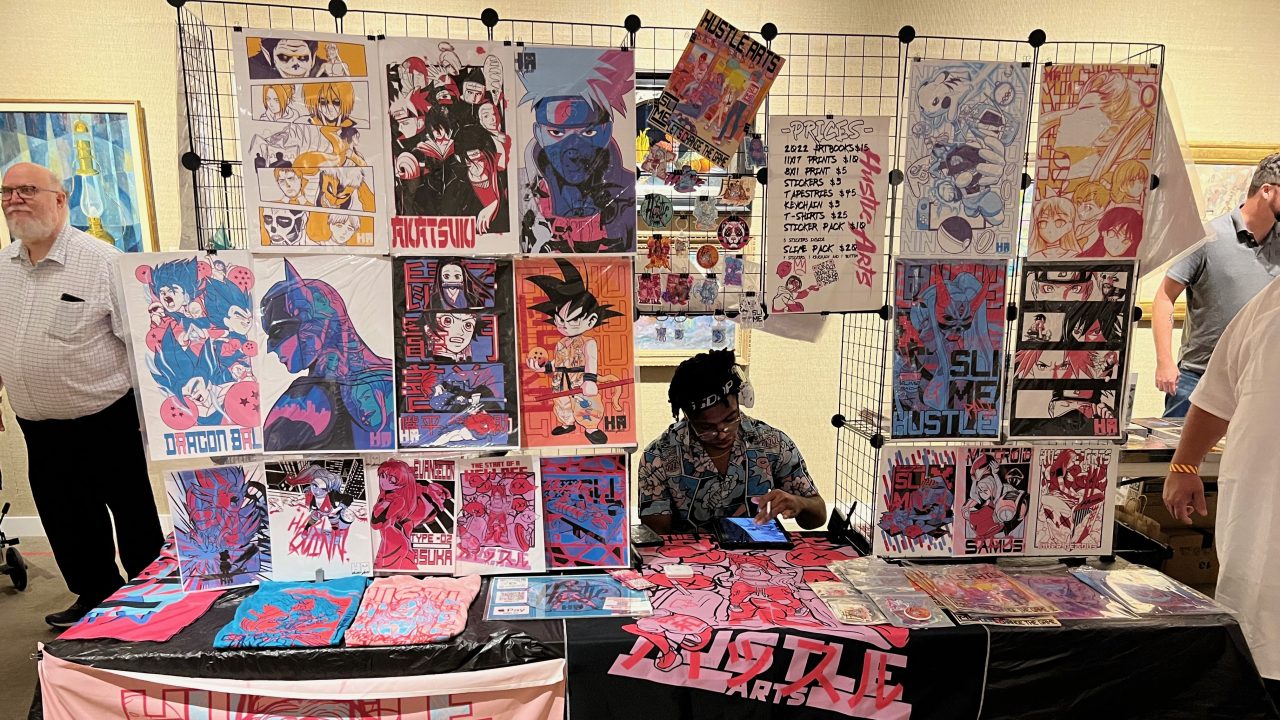
Did you know that a freight elevator can just barely fit a life-size Tyrannosaurus rex puppet? We happened to learn this while getting ready for the Geek Con, an annual event held by the Evansville Museum of Arts, History & Science in Evansville, Indiana. After five years of organizing this event, we thought we had seen about everything, but it turns out we were wrong: We had never seen a dinosaur get stuck in an elevator.
That’s just the type of thing that can happen when you are creating out-of-the-box but still-inside-a-museum events. The Evansville Museum Geek Con is a new kind of museum experience. This community-driven, revenue-generating event highlights the geeky side of art, history, and science. Featuring special guests, panels, local artists, hands-on activities, a cosplay contest, and vendors, the Geek Con brings in new audiences to the Evansville Museum while staying true to its mission of an educational experience.
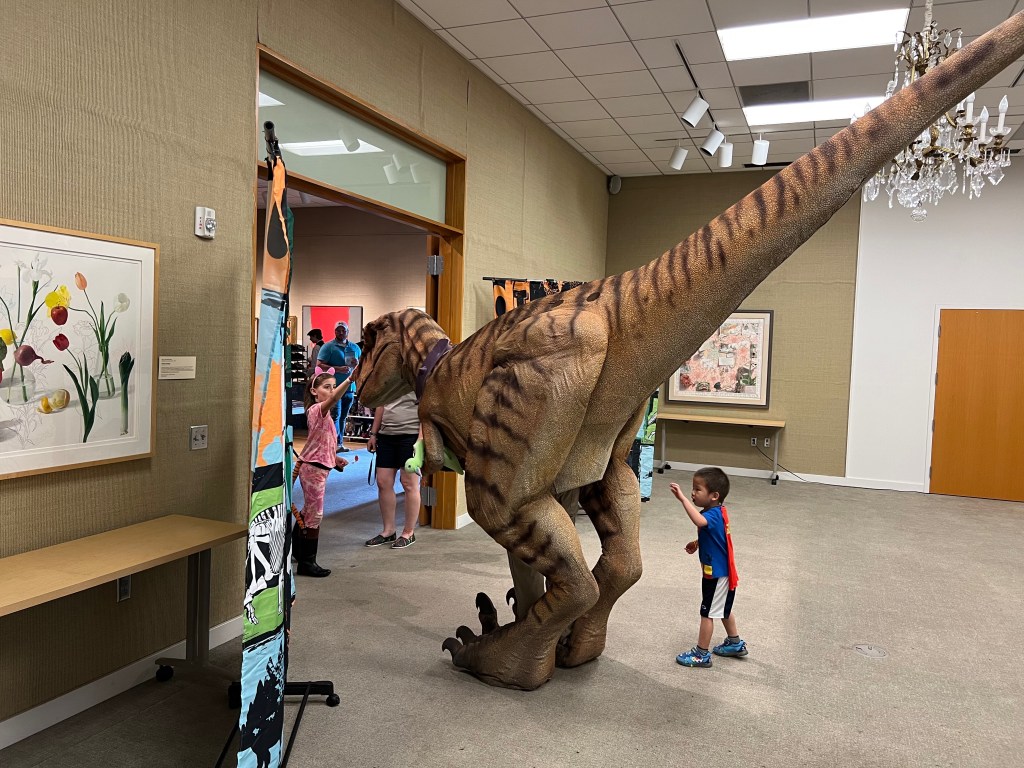
Our names are Karen Malone and Tarrah Kopka, and we are the Curator of Education and Receptionist extraordinaire, respectively, at the Evansville Museum. We believe that education should be fun, meaningful, and inclusive, and the Geek Con is just one way that we accomplish those goals at our institution. And we want you to be able to do this too!
Even if comic books don’t mesh with your institution’s mission or collection, what about film noir or Victorian poetry? A World’s Fair expo or living history experience? With the right planning and organization, community involvement, leadership reflecting the target community, and mission-focused and engaging content, museums can create events that their communities will not only enjoy but pay to attend.
As we just completed our sixth year of the event, this blog post will share some of the tips and tricks we’ve learned through the process. Hopefully, it will encourage you to host your own convention event at your institution, geeky or not.
1. Start with Your Mission
When you hear the word “convention,” your mind probably goes to the huge ones you are most likely to see on TV—the New York or San Diego Comic Cons, Denver Pop Culture Con, FanX—but there are actually hundreds of these events around the world every year.
Let’s be clear. You are not going to replicate these huge events. You can’t, and you won’t want to. Instead, you are going to want to focus on doing something special, something only your institution can do. And that means you will want to start with your institution’s mission.
At the Evansville Museum of Arts, History & Science, our collections are focused on (you guessed it!) arts, history, and science, particularly those of the Evansville area. In turn, our geek con event focuses on aspects of those disciplines too. We’ve looked at the art and artists behind comic books, the history of superheroes, and the real science behind science fiction, for instance. Our vendor room features local geek artists and comic book writers, and we’ve done presentations on the astronomy of science fiction in our planetarium. Everything is connected, at least loosely, to our museum’s mission.
Your event should highlight your mission, too. For example, if you work for a historic house museum, you may want to focus on historical costumes or movies about your associated period. A botanical garden may wish to focus on enthusiasts of a particular plant type such as a cacti convention, or maybe even host a plant-inspired fashion show. By focusing on your mission, each of our institutions can host its own unique event.
2. Make It Local
The big-name conventions can bring in super famous celebrities and guest stars. We’re going to guess that your institution won’t have the budget to do that, and that’s okay!
To make your event unique, you are going to want to focus on the local celebrities in your area. You will be surprised at all the cool people who have connections to the subject and are willing to help with your event. For example, in Southern Indiana we have a Hollywood special effects creator, multiple Eisner-winning comic book creators, and a National Book Award-winning graphic novelist, to mention just a few! These individuals have graciously lent their celebrity to our event, helping us create something special for our community.
3. Talk to Everyone
You are going to want to tell everyone you know that you are doing a convention. These events are and should be community-driven, so you are going to want to hear what your community wants. And that’s also how you are going to meet the super cool local celebrities referenced in point number two—word of mouth.
Much of the content of a typical convention is created by the community; individuals submit panel proposals and give most of the presentations. Some of the topics the Evansville Museum has featured in the past include “Attending Cons 101,” “Nate Powell: A Career as a New York Times Bestselling Graphic Novelist,” “Buckaroo Banzai: Quintessential Hero of the ‘80s,” “Serious Comics: The History of Political Cartoons,” “All it Takes is 10 Cents: Captain America as a Propaganda Tool During WWII,” “The Ins & Outs of Comic Book Collecting,” “Stormtroopers, Superheroes and the Public Good,” “Creating Make-Believe Worlds and Creatures,” and “Developing Your Style Through Sketchbook.”
To reiterate—all of the above presentations were community-generated! Reach out to people in your community; they will have ideas and skills you couldn’t have even dreamed of and will be happy to share them.
4. Pick a Date & Keep it Affordable
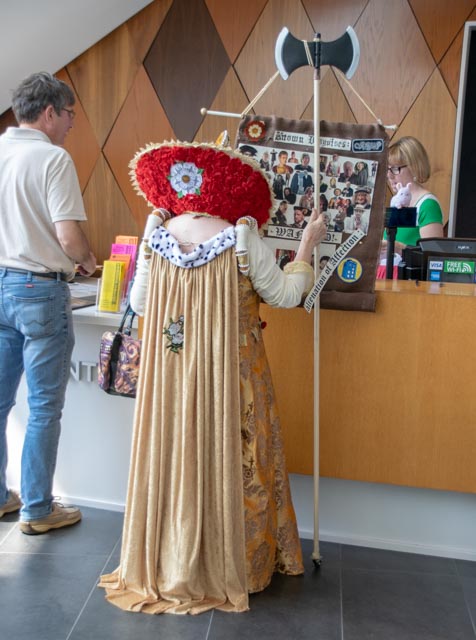
Geek and enthusiast communities can be surprisingly large, but they can also be highly coordinated, so while it is possible you can have hundreds of people attend your event, you are going to want to make sure you don’t pick a date when another similar convention is happening nearby—people can’t be in two places at once. So, ask around, do some research, and pick a date that won’t conflict with another con in your region.
You’ll also want to keep the pricing affordable. For the first two years, the Evansville Museum experimented with offering the event at special event pricing, but we discovered that doing so hurt our attendance numbers. Now, we just charge our regular admission price (currently twelve dollars for adults, eight dollars for kids, and free for museum members) and the entire event is included as a bonus.
Because our event draws a large crowd but has few expenses, other than staff time and food for volunteers, it brings in four to five times as much as we spend without increasing ticket prices. In addition to admission sales, we also generate revenue through selling vendor spaces and event sponsorships.
Overall, the success of these types of events hinges on having a large number of guests. Half the fun, and therefore the success, of any convention is the social experience. Exclusivity is not the goal; you’ll want to have more people paying less money rather than a few people paying more.
5. Start Early
A convention takes a lot of planning, and you are going to want to start early. We recommend beginning the process at least nine months before your event for your first year. That’s because a lot of the marketing and special guest recruitment will take place via word of mouth and social media shares. Give yourself enough time for that to be successful.
At this point, you might be asking yourself, “How can I do this? I don’t have a large staff.” Neither do we! The Evansville Museum Geek Con is essentially a two-person operation. Together, we organize the entire event. On the big day, dozens of amazing community volunteers help us run the actual event, but in terms of organization and planning, it is just the two of us. While we couldn’t do it without our volunteers, we want you to know that you don’t need a large team or committee to start the ball rolling.
6. Be Organized and Plan for Everything
Plan ahead! Organization is key when planning a convention because there are a lot of moving parts. Create a spreadsheet of everyone you talk to. Make your vendor and panel packets early (and feel free to e-mail us at karen@emuseum.org for examples). Write everything down.
You’ll also want to map out your location. Which spaces in your institution will serve as presentation spaces and which can be vendor rooms? Where will you hold activities that draw a crowd, like a cosplay contest? Where will guests sit down, eat, and hang out? (Remember, socializing is half the fun of a convention.) Remember to leave adequate walkways and mind the fire exits. You’ll want to know exactly how many vendor spaces you can sell and exactly how big of a dinosaur you can fit in your elevator.
7. But When the Plan Changes, Be Okay with That
Things will probably go wrong. You might have a vendor show up that you thought cancelled but really didn’t. You might suddenly need more tables than you set out. Maybe your headlining guest speaker just called to let you know they are going to be half an hour late. That’s okay. Being prepared with a solid masterplan means that when something needs to change you won’t need to panic over the smaller details and will know exactly where those changes can be made without snowballing the situation.
8. Respect the Culture
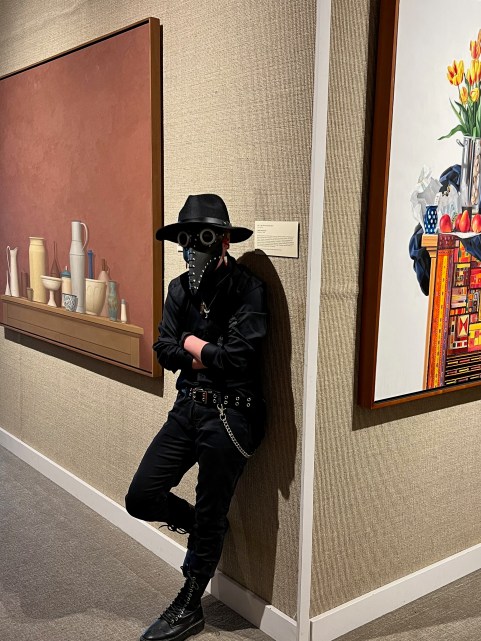
Just as diversity and inclusion are important, and museums should strive to create exhibitions and programming with the community, not just for them, the same is true for community and fan conventions. Your success hosting an event of this kind will depend on your respect for and connections with the community you are trying to bring together. With the Evansville Museum Geek Con, for instance, we strongly believe that much of the success stems from the fact that it is an event made by geeks for other geeks. We are both proud geeks who are well-immersed in geek culture and go to other cons on our own time.
Conventions are more than an opportunity to generate revenue for your institution; they are an avenue to reach out to whole new audiences. The vast majority of guests to the Evansville Museum Geek Con are not only non-members, but many of them have very rarely or even never visited the museum before. And while we have guests across all age demographics, a substantial number of them are teenagers, young adults, and young professionals, demographics our institution doesn’t typically reach.
When attending cons, one of the things guests value most is the sense of inclusivity. Cons are often places where people can be themselves in ways they can’t comfortably be in their everyday lives. You can be proud that you are a giant Star Trek nerd or into cosplay, or whatever your deepest passions happen to be. Oftentimes, they are also safe spaces for marginalized people—comic cons, for instance, are often havens for LGBTQ+ youth to express who they are. That’s important, and if you pursue an event like this, keep that in mind: It is more than just an event; it is a place of community. You are striving to create an atmosphere of belonging, something that your guests will remember for years to come.
9. Build Trust with Staff
I would like to take a moment to thank the Evansville Museum’s Executive Director, Mary Bower, the museum’s Chief Curator and Curator of History, Tom Lonnberg, and the museum’s board of trustees. Most of these individuals are not geeks and, to be honest, a comic con is not exactly their cup of tea. Nevertheless, they gave us their support in trying something new and reaching out to non-traditional audiences. Having their backing was an essential step to the formation and growth of Geek Con.
When you begin planning for your own out-of-the-box event, make sure to include these key people in your organization, and be prepared to answer their questions. Just because they are unfamiliar with the concept doesn’t mean they won’t enjoy it once you share it with them. Equally, if you yourself are in a position of leadership at your institution and can give such support to your team, know that it can make all the difference when starting something new.
10. Have Fun!
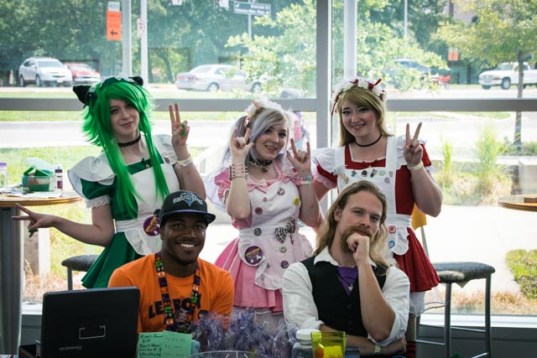
During the very first year of the Geek Con, one of the museum’s neighbors called the cops. This neighbor had noticed a large group of people wearing strange costumes and masks congregated outside the museum and became concerned. The police showed up and, after they learned what we were doing, thought it was hilarious. We all had a good laugh.
Conventions like comic cons are different from your typical museum event, and you will have some weird experiences, meet a ton of amazing people, and have the time of your life. Some of the best moments of our museum careers have taken place at Geek Con. We both are constantly running into people around town who tell us how much they enjoyed the event and how much it meant to them. We hope you too can create such an experience for your community.

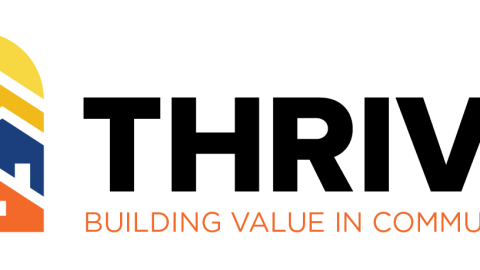
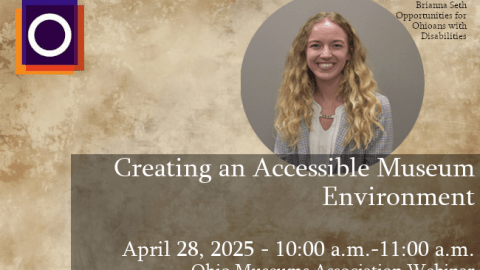

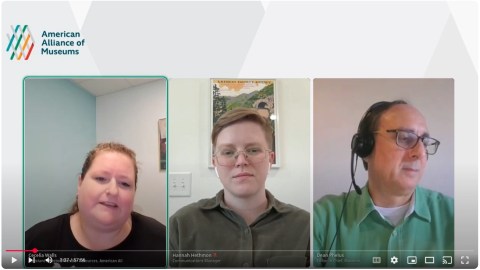
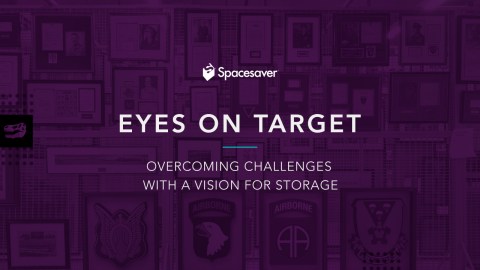


As a first-time volunteer at this event, I had a wonderful experience. Karen and Tarrah have covered tons of information in their blog. I will say that from my perspective, that inclusivity and sense of community were very much on display. My role was to host the vendors and VIPs. They felt so welcomed and cared for every time I did my rounds offering water and simply checking in their needs. In turn, I – as a middle aged woman with no previous con experience – felt very much invited into their world. So very glad I participated- and hope to do so again!!